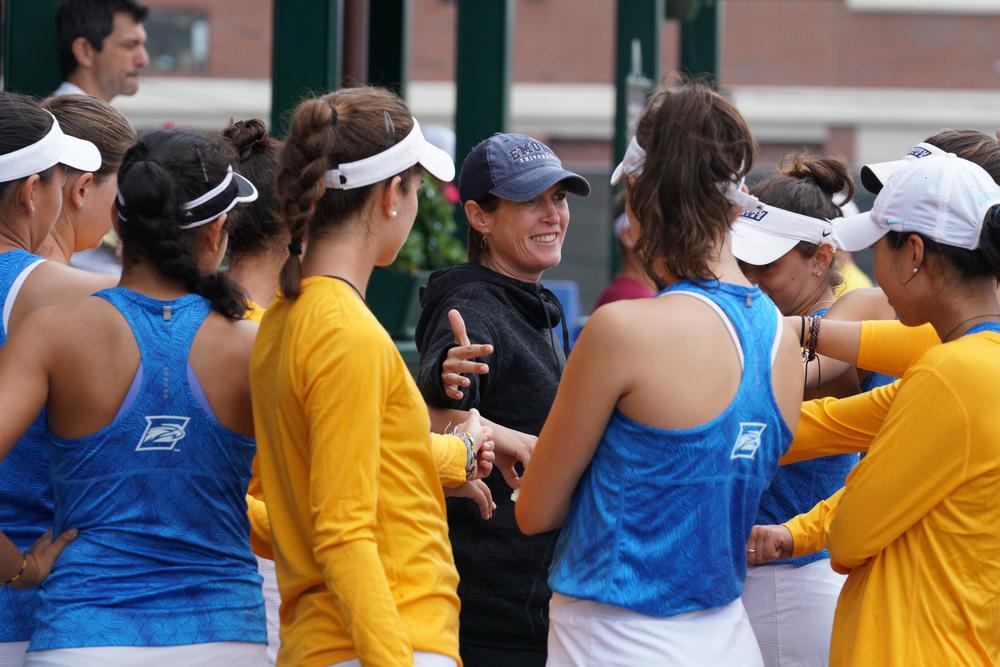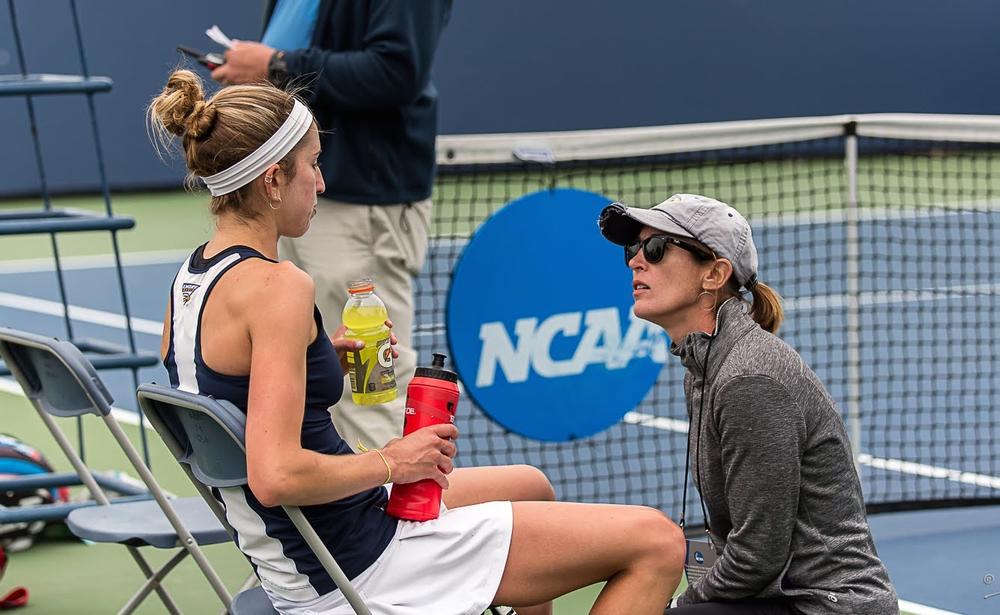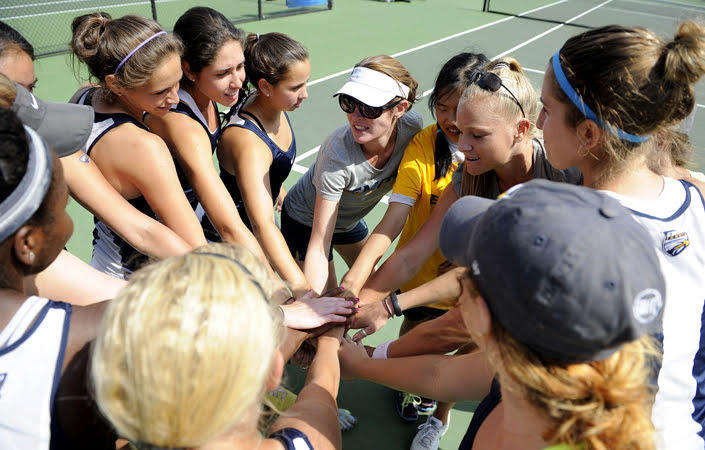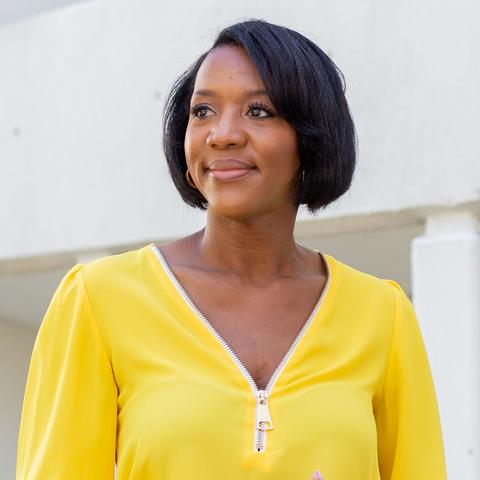
Section Branding
Header Content
Serena is not the only woman evolving away from tennis. Meet Emory's Amy Bryant
Primary Content
LISTEN: After 23 years, Amy Bryant, women's tennis coach at Emory University, in Atlanta is retiring. Bryant is the first woman in NCAA history to win the national team championship both as a coach and a player. GPB's Leah Fleming speaks with Bryant.

The women's professional tennis landscape is about to change. Serena Williams has announced that she will retire after the U.S. Open. Meanwhile, closer to home in Georgia, another woman has also announced her retirement from the game of tennis. Her name is Amy Bryant. After 23 years, she is retiring as head coach of women's tennis at Emory University in Atlanta.
Bryant is the first woman in NCAA history to win a national team championship as a coach and a player. She spoke with GPB Morning Edition host Leah Fleming.
Leah Fleming: Often when someone makes a decision to retire, there are all these memories of the journey that come flooding back to your to your mind. In your letter to the college community, when you announced your retirement, one of the things you mentioned that really struck me was when you said, quote, “finally beating a rival college after losing 10 times in a row.” That just speaks volumes about life in general as well. Talk about that.
Amy Bryant: Well, the story really begins before the infamous losing streak happened. It started, you know, kind of at the beginning of my coaching career. When I started back in 99, I really tasted a lot of success right off the bat. And by 2001, we were finishing third in the country, then 2002 second, and then 2003 we won. And then we won again and then we won again. So in my mind, winning really became synonymous with success. And so as quickly as that dynasty was built, it seemed to fall. We lost the next year, and then the next year we lost again to the same team. And then it continued 10 times in a row. So I became really fixated on beating that school. I would sit at the dinner table with my family, thinking about matchups. And the more we lost, the more unreasonable I became — and my thoughts and my expectations for myself. I would say things like, "If you don't beat them, you're not as good a coach as that coach is." You know, "If you don't beat them, your past wins are just a farce." I would actually walk down the street and see someone wearing their colors and automatically my heart would start racing. So I couldn't — I couldn't even eat or sleep before we played them. I really had started believing that winning was the only option and the losses really were equated with failure. So I finally got some help and did some therapy and learned to meditate and I gained some perspective and I began to really focus on the process instead of the end result. And I gradually found joy in things besides winning. So I learned how to really appreciate the relationships I had with my player, which is also something that I included in that letter.

Leah Fleming: There's a new report from the NCAA that examines the 50th anniversary of Title IX, and it shows the number of women that are competing at the highest level of college athletics. It continues to rise, along with an increasing funding gap between men and women's sports programs. And so I'm wondering, is that the case at Emory? Have you had conversations with leadership about equality in terms of your athletic program?
Amy Bryant: Yeah. I mean, it's a really disappointing study for me to read. I can honestly say that I've been so fortunate at Emory. As a student athlete, you know, I had multiple opportunities to play. I played two sports when I was in college. You know, I wouldn't have had that opportunity if it hadn't been for Title IX. And then as a coach, I've witnessed, at Emory, our athletics department expand from seven women's sports teams to nine with the addition of softball and golf. So I can say ... fortunately I have not had to have any difficult conversations about funding equality or anything like that at Emory. They're doing a great job there.

Leah Fleming: You came to Emory as an athlete. How did that come to be? You started playing, I would imagine, as a kid in high school, and then you decided you wanted to do it in college?
Amy Bryant: Well, I started playing as, probably — I mean, my mom has a picture of me with the tennis racket in my hand when I was in my crib. (Laughs) But I don't think I started playing til I was at least 6 or 7. But I played multiple sports growing up — was very athletic, very active. And I think the process of getting to Emory for me was very much like it is for so many students today. I had a list of schools I was interested in, and actually my list was more driven by academics than it was by athletics because I was a good student. Ironically, when I — I started, I wasn't, like, completely married to the idea of playing in college. It just wasn't a driver for me then. But, you know, 30 years later, looking back, I cannot imagine having a positive and productive college experience without athletics.
Leah Fleming: So this leads me to ask you about your new venture, Bryant College Coaching. What will you be doing?
Amy Bryant: Sure. Well, kid sports is just big business. And I really grew tired of watching recruiting services take advantage of hopeful parents — parents that are hopeful for that full ride. You know, it's such an extremely rare golden nugget. And the other thing is, too, you know, a lot of student athletes have unrealistic expectations about where they can play. It can be so easy to get wrapped up in that ESPN College Game Day hype and think that that could be you. And then there's this misconception, too, about those same programs you're seeing on the TV, competing about those programs, having the all-around superior athletic programs. And it's just not the case. And coming from a Division III school, I really feel responsible to caution parents against adopting that Division I tunnel vision. The Division III philosophy, the holistic opportunities that exist within is — it's worth exploring and after coaching there for so long, I can really, you know, see the big picture and I feel responsible to share the options and direct students towards what's best for them.
Leah Fleming: So, you and Serena are both retiring from tennis, in a way.
Amy Bryant: (Laughs) I can't believe you're saying my name in the same sentence as Serena's! That — that is a first. Thank you so much for that. Wow.
Leah Fleming: So what are you — what are you gonna miss about coaching?
Amy Bryant: The relationships. The relationships are really — they're at the core of what I do. And what I've always done — and still want to do, with my business. Being able to mentor, you know, student athletes, through the ups and downs and having them learn from me at the same time that I'm learning from them? That's what I'm gonna miss the most, honestly.
Leah Fleming: Amy Bryant is the head coach of women's tennis at Emory University in Atlanta. She is retiring at the end of the month.

